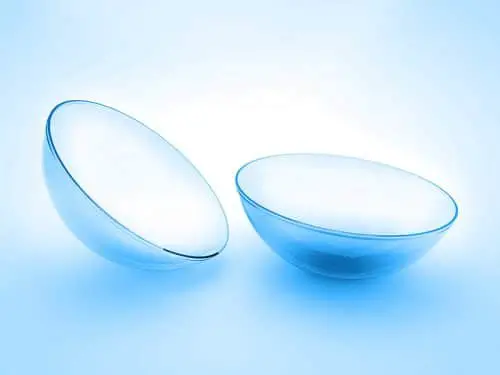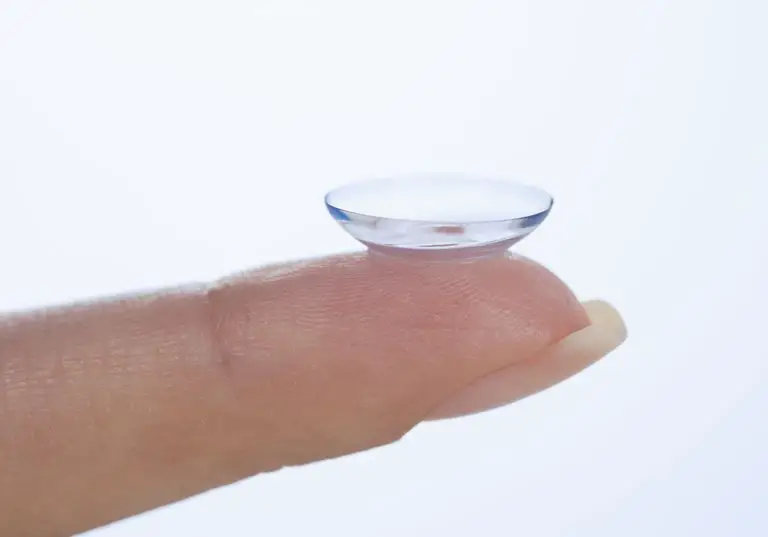If you are someone that suffers from poor eyesight, you may have been led to believe that you will never be able to scuba dive. This is because the masks that keep you alive when you are under the water were not designed to accommodate glasses frames. This may seem ridiculous to some of you, as surely you should be able to squeeze your glasses under your mask and call it a day? Unfortunately, this is not the case and if you did try to do this, then your mask wouldn’t be sealed properly and water would flood in- meaning you wouldn’t be able to see anyway. This would be even more of an issue if you are someone wearing a full face mask as this could interrupt your breathing, which would likely kill you unless you are someone who has had time to increase your breath hold.
Though you will not be able to wear glasses when you scuba dive, you don’t have to be completely blind. This is because there are a number of options available for you on the market, such as diving glasses. One of the more popular options for poorly sighted divers is contact lenses. Now, I’m not talking about just any old contact lenses. The ones you use have to be soft lenses as harder lenses can be damaged or even damage your eyes.
You may think diving with contact lenses is ridiculous or even dangerous, but plenty of people out there do it frequently. Here is what you can expect when it comes to diving with soft contact lenses.
Why soft lenses and not hard lenses?

Soft lenses are a much better option as they allow gases to enter and escape them, much unlike how hard lenses work. Hard lenses do not allow the gas to escape, so it remains trapped within the lens, leading to a buildup of nitrogen bubbles. If you have experience with scuba diving, you will know that nitrogen builds up anywhere is a bad thing.
You can also wear soft lenses with less worry as they are much bigger, which means they will not only be more comfortable, but they are less likely to fall out of your eye mid scuba diving.
Moisture and soft lenses
One difference between hard lenses and soft lenses that may present itself to be a problem is that soft lenses are much more likely to absorb water. Considering that you will be spending your time in the water while you scuba dive, this is an issue. This means that your lenses could absorb salt water or water with bacteria in it, which could be very bad for your eyesight. However, if you are careful you can easily avoid this being an issue. It’s actually very easy to make sure that your lenses don’t come into contact with water.
We recommend that you make sure that your mask is on securely before you get into the water, as trying to put your mask on when you are already in the water may mean that your hands are already wet or your mask may already have moisture in it.
Eye drops
Because soft contact lenses have the habit of drying the moisture from your eye, you should make sure that you pack eye drops with you and administer them whenever you are surface level. There is nothing more irritating than your eyes being dry, especially when you are trying to have fun under the water. Having dry eyes may also get in the way of your vision, which is the last thing that you want to experience when you are under the surface, as many things could serve to be a health and safety risk. For example, there may be predators surrounding you in the water, and you may miss it because you are so preoccupied with your itchy eyes. So you could be diving with hammerhead sharks and not even realize, which obviously serves some health and safety risks. So be sure to keep your eyes moist.
Bring spare contact lenses

It would be silly to think that one pair of lenses would last you a full day. If you have plenty of experience in wearing contact lenses, you will know just how temperamental they can be and how easy they are to lose. This may not be an issue if you are hanging around your house, but it may prove to be an issue when you are under the surface of the water. Now, you may get lucky and not lose your contact lenses through your entire scuba trip, but there is no harm in being safe rather than sorry. After all, you don’t want to lose a lens and have to spend the rest of your day sitting on the shore watching your friends have a good time scuba diving.
As previously discussed, your contact lenses may also come into contact with water, and if you want to avoid irritation, it would be best to have a spare pair to change to. This means you wouldn’t have to deal with any annoying inconveniences when you’re trying to enjoy scuba diving.
Wash your hands
With any contact lenses that you use. You must regularly wash your hands. As humans, we have the habit of touching anything that feels out of place on our face, and so it is no wonder that we feel the need to poke at our eyes when we have contact lenses in. Obviously, doing this isn’t recommended, but it is hard to avoid more often than not. Contact lenses easily pick up bacteria, so if you are touching them with dirty fingers, you will get some sort of infection. When you are scuba diving, you are also touching a lot of salt water, which can be drying for your contacts, so be sure to make sure your hands are clean.
